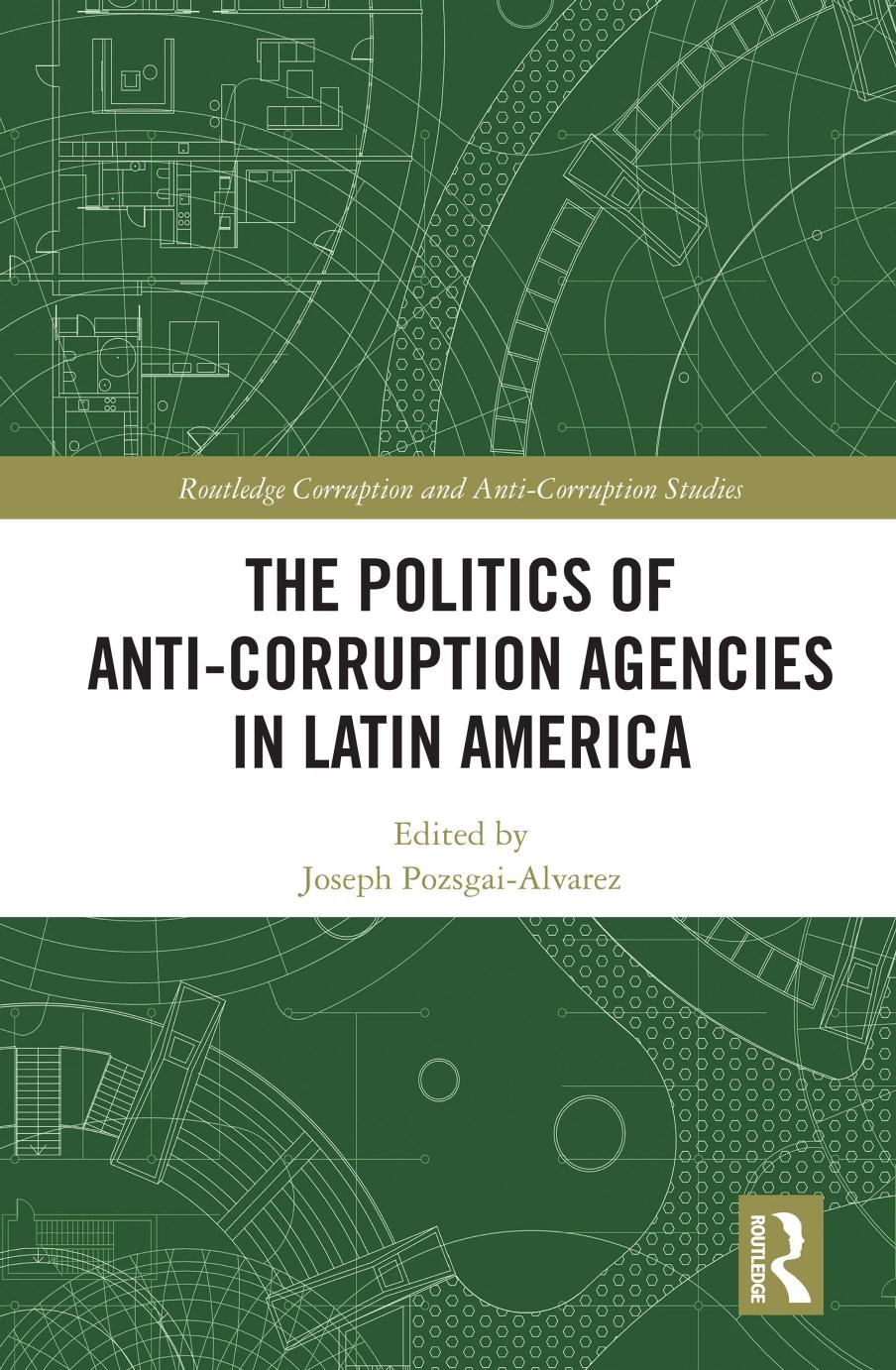The Politics of Anti-Corruption Agencies in Latin America by Joseph Pozsgai-Alvarez

Author:Joseph Pozsgai-Alvarez [Pozsgai-Alvarez, Joseph]
Language: eng
Format: epub, pdf
ISBN: 9781000487855
Goodreads: 58389499
Publisher: Routledge
Published: 2021-11-29T00:00:00+00:00
9âDealing with the âoriginal contradictionâ in fighting corruption in countries with systemic corruption
A critique of the cases of Brazil and Mexico and their multiorganizational strategies
David Arellano-Gault and Gabriel S. Rojas
DOI: 10.4324/9781003147886-10
Introduction
Since the 1990s, efforts to reduce corruption have led to an unprecedented international movement. The anti-corruption agenda has become a central topic for national governments, international organizations, non-governmental organizations, and academe. Thus, it has become just as important to study corruption as anti-corruption efforts. This wave of international anti-corruption efforts has spawned an entire anti-corruption industry, with advocates and experts dedicated to proposingâand sometimes imposingâinstruments, mechanisms, tools, and theories to describe what corruption is and how to tackle it (Arellano-Gault, 2020a; Sampson, 2005). Anti-corruption reforms are not neutral, impartial, or free of political intentions. These reforms are built on metaphors and rhetoric, the most influential one being the metaphor of âthe cancer of corruption.â This simplistic metaphor has allowed various international organizations, NGOs, and experts to draft a series of standardized policy recommendations for almost any country or situation. Even though there is a broad range of political systems and national histories, the same manuals and benchmarks have been suggested and encouraged to be used by different countries. What is the politics behind these reforms, organizations, and ideas?
The creation of this anti-corruption industry has had significant sponsors: World Bank, Transparency International (TI), and the Organization of Co-operation and Economic Development (OCED) being some of the most influential. With some variations, these organizations frame corruption as the use of delegated power for personal gain. This general, simplistic definition has been widely contested (Haller and Shore, 2005). There is a large body of literature regarding corruption, instead, as a complex phenomenon constructed and agreed upon through various social and organizational interactions (Arellano-Gault, 2020a). Nevertheless, in the hegemonic discourse, corruption has become an umbrella concept that forces to âpack upâ a broad and heterogeneous set of acts under a simplistic and normative vision; for example, bribe, conflict of interests, embezzlement, nepotism, fraud, among others, are quite different types of acts embedded into this plain conception of corruption. Thus, this normative umbrella concept is limited to understanding how these different types of acts and practices can be defined as corrupt or at least unethical acts. Therefore, corruption as an umbrella concept is becoming less useful for discussing specific political and instrumental strategies for coping with widely differing types of practices in distinct contexts.
One of the effects of the hegemonic, militaristic/health metaphor of âfighting the cancer of corruptionâ has been constructing grand strategies national states must implement to prove their commitment to fighting the âdiseaseâ of corruption. Even though these reforms are touted as fully integrated, rational mechanisms, the fact is that they rely on the participation and agreement of many groups, organizations, and political interests, at least for their implementation. Making these reforms work involves tough negotiations and the considerable, costly legal and institutional design or redesign of government and private organizations. It has also been clear that, beyond rational institutional design, to yield
Download
The Politics of Anti-Corruption Agencies in Latin America by Joseph Pozsgai-Alvarez.pdf
This site does not store any files on its server. We only index and link to content provided by other sites. Please contact the content providers to delete copyright contents if any and email us, we'll remove relevant links or contents immediately.
The Secret History by Donna Tartt(19086)
The Social Justice Warrior Handbook by Lisa De Pasquale(12190)
Thirteen Reasons Why by Jay Asher(8909)
This Is How You Lose Her by Junot Diaz(6886)
Weapons of Math Destruction by Cathy O'Neil(6279)
Zero to One by Peter Thiel(5801)
Beartown by Fredrik Backman(5754)
The Myth of the Strong Leader by Archie Brown(5507)
The Fire Next Time by James Baldwin(5442)
How Democracies Die by Steven Levitsky & Daniel Ziblatt(5218)
Promise Me, Dad by Joe Biden(5153)
Stone's Rules by Roger Stone(5087)
A Higher Loyalty: Truth, Lies, and Leadership by James Comey(4961)
100 Deadly Skills by Clint Emerson(4925)
Rise and Kill First by Ronen Bergman(4788)
Secrecy World by Jake Bernstein(4753)
The David Icke Guide to the Global Conspiracy (and how to end it) by David Icke(4717)
The Farm by Tom Rob Smith(4507)
The Doomsday Machine by Daniel Ellsberg(4490)
